Top entrepreneurship books you can read to get viewpoints about startups
Here, we have shared some books that can help you understand startups. We have collected some of the top entrepreneurship books you can read

Entrepreneurship is a journey full of chances, risks, and obstacles. Books may always be your guiding light, helping you to attain your objective, whether you are someone who has just started their own business or an experienced person who wants to hone their entrepreneurial skills.
In this post, we've compiled some of the best books that will provide you with a quick overview of entrepreneurship while also addressing numerous business, leadership, innovation, and success-related topics. These books will give you insightful information, practical advice, and motivation to help you succeed in the fascinating world of entrepreneurship.
Peter Thiel's book "Zero to One"
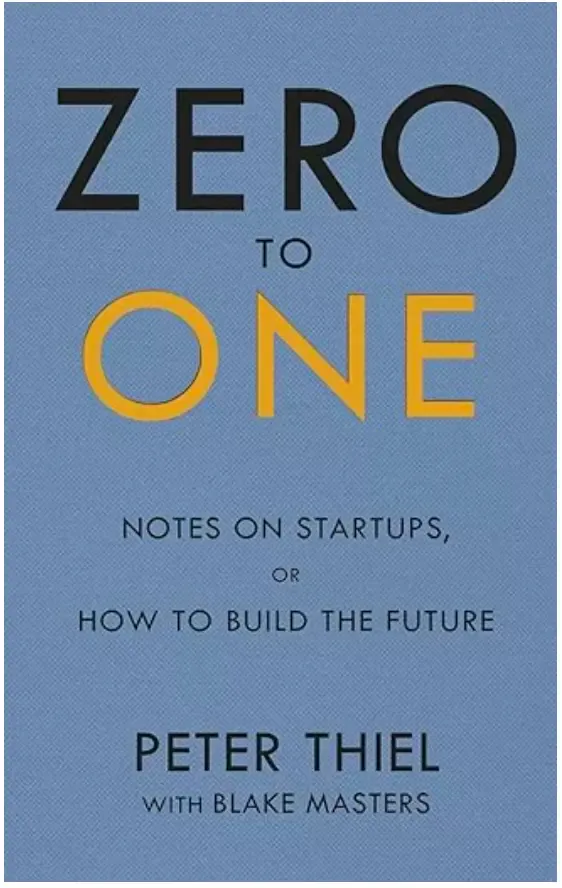
This book is a unique gem in the field of business literature. The book was published in 2014, and since then, it has held the attention of both seasoned and prospective business owners. The book presents a radical viewpoint on start-ups, innovation, and the art of monopoly creation.
Starting small and concentrating on niche markets were stressed throughout the book. The author makes the case that business owners should concentrate on a limited market before expanding.
Additionally, the idea that technological innovation is essential for establishing a monopoly is covered. One of the primary ideas in this book is the importance of forming monopolies.
The book has received widespread praise, but some readers have critiqued it, saying that Thiel's emphasis on monopolies can be perceived as anticompetitive and possibly harmful to consumers. For business owners looking for new ideas and perspectives on how to create a successful and ground-breaking company, Zero to One can be a thought-provoking read.
Important lessons from this book
- Competition and monopolies
- Innovation is important.
- Scale up from a modest base.
- Horizontal vs. vertical progress
- Defying accepted wisdom
- The importance of creating teams
Jim Collins' book "Good to Great"
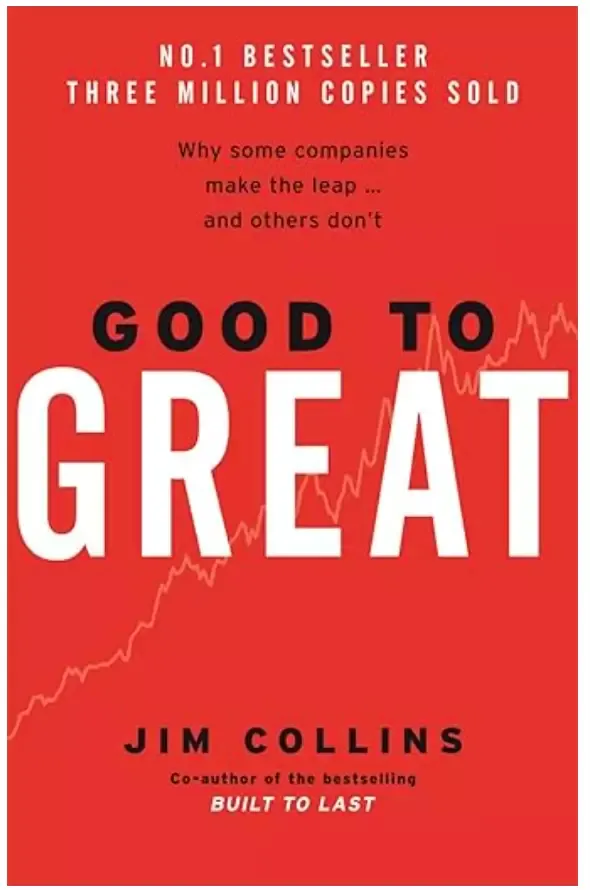
The business world considers Jim Collins' Good to Great to be a modern classic. The book, which was published in 2001, has been a valuable resource for business owners, entrepreneurs, and leaders who want to understand how to distinguish between good and great firms.
The Hedgehog Concept, which was inspired by the fable of the hedgehog and the fox, is discussed by the author in this book. The author makes the case that truly outstanding businesses concentrate on what he refers to as the "hedgehog concept," which is the intersection of three important ideas: quality, economic drive, and passion.
This book is a perennial classic for company owners thanks to Collin's research-based insights and emphasis on enduring leadership principles. You can achieve long-term success and greatness in your business by putting the ideas from this book to use in your commercial pursuits.
Important lessons from this book
- Leadership at Level 5
- Hedgehog Concept
- The idea of a flywheel
- Before what, ask who
- Facing the harsh reality
- Technology advances
The Eric Ries book "The Lean Startup"
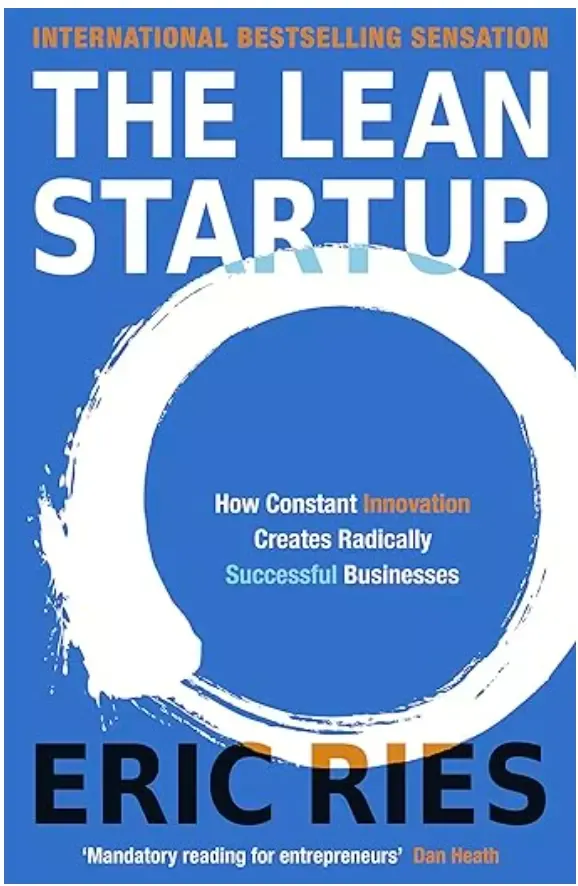
The landmark book "The Lean Startup" completely altered how entrepreneurs think about the process of founding, growing, and managing firms. A precise process for starting firms that are both innovative and sustainable is provided in the 2011 book.
The fundamental idea of the book is to create a firm using iteratives, which are incremental stages meant to reduce waste and increase learning. The startup industry has been greatly impacted by this book.
The book provides entrepreneurs with an organised and adaptable method to create an agile, adaptable, and customer-focused startup. Entrepreneurs can create successful businesses by avoiding the waste and risk associated with conventional startup approaches by applying the knowledge given in this book.
Important lessons from the book
- Build, measure, and learn.
- Validated education
- Turn and keep going.
- Lean methodology
- Continuous deployment
Simon Sinek's "Start with Why"
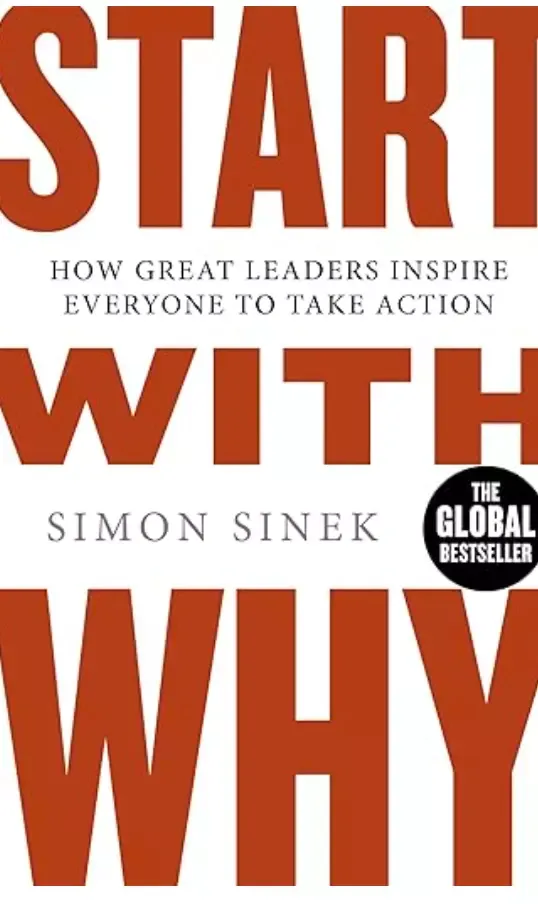
In his book Start with Why, Simon Sinek explores the tremendous effects that having a strong sense of purpose can have on people and organisations, as well as their capacity to motivate and lead others. Entrepreneurs from all around the world have reacted favourably to the 2001 book and been motivated to delve deeper and discover their why.
The author provides real-world examples throughout the book of how major corporations have changed their strategies by merely concentrating on why. Apple is one such example of a company that altered the technology industry by putting its why first and then its how.
The book urges business owners to look ahead and uncover their higher purpose. Businesses can undoubtedly drive creativity, encourage customer loyalty, and forge enduring relationships with their audience by starting with why and articulating it in a clear, consistent manner.
Important lessons from this book
- The circle of success
- The law of innovation dissemination
- The significance of consistency and clarity
- Motivating instances
Adam Grant's "Originals"
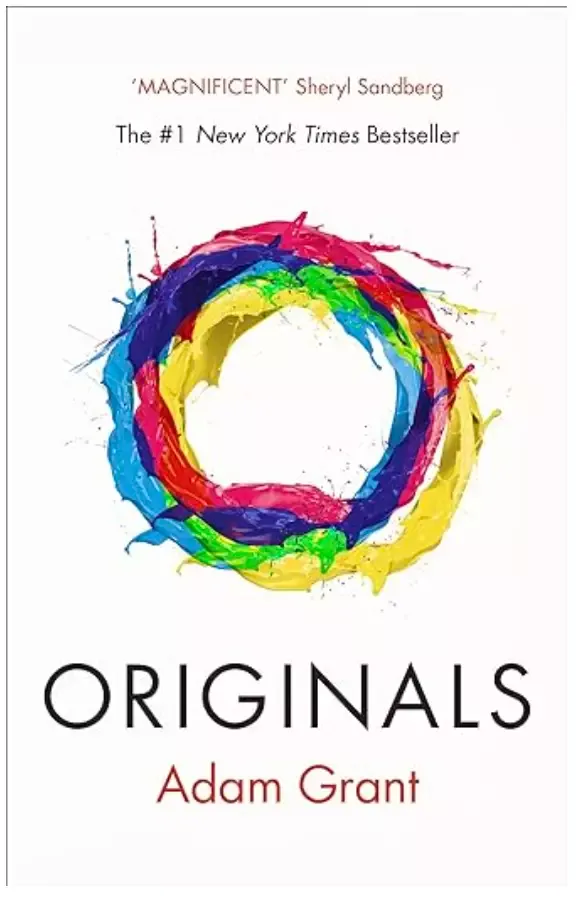
The book Originals explores the idea of originality and how it fosters creativity and innovation in both business and daily life. The 2016 publication of the book questions conventional wisdom and provides helpful advice on how people and organisations may foster an originality-driven culture.
The book issues a call to action for people and companies to embrace creative thought, challenge the status quo, and promote an innovation culture. Individuals and organisations can reach their full creative potential and have a significant impact on their sector and the wider world by fostering strategic risk-taking, dissent, and a dedication to innovation.
The book focuses on how to harness your original ideas and make them a reality, regardless of whether you are a creator, entrepreneur, leader, or someone trying to nourish your creative spark.
Important lessons from this book
- Use of procrastination
- Group dissension and thinking
- Taking risks and being afraid to fail
- Timing and originality
- What leaders do
- Inclusion and diversity
- Entrepreneurial spirit and creative minds.
Chris Guillebeau's "The $100 Startup"
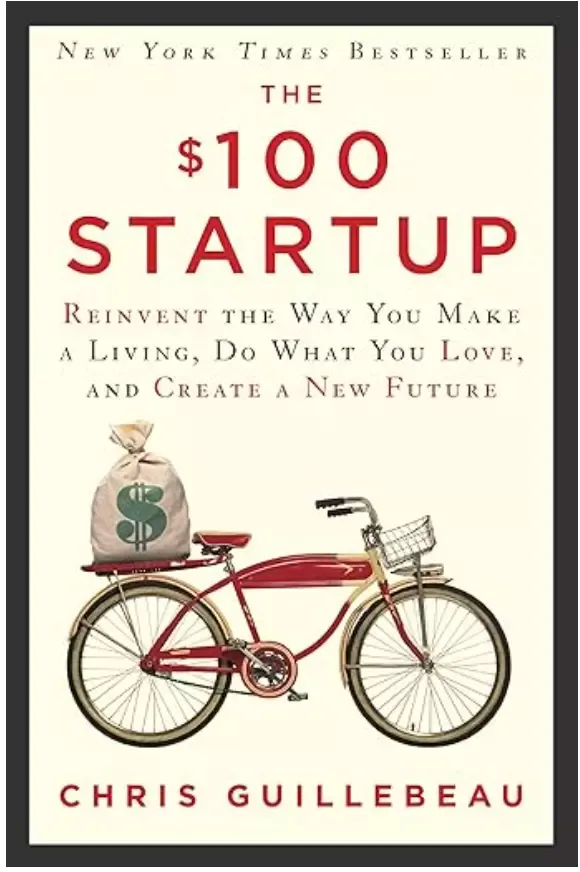
The book serves as a helpful and motivating manual for ambitious business owners who wish to launch their ventures with the least amount of cash outlay. Numerous people have benefited from the book's advice on how to turn their interests and talents into successful businesses.
The idea that a successful firm requires a large financial investment is debunked in this book by Chris Guilleabeau, who also provides a step-by-step guide for attaining entrepreneurial success on a tight budget. It provides practical advice on how to convert your concepts into successful ventures.
You can build a microbusiness that fits your abilities and interests by embracing the ideas of passion, problem-solving, and lean startup methods. The book will give you a road map for success in this industry, whether you want to establish a side business, earn additional money, or launch a full-fledged enterprise.
Important lessons from this book
- Zeal and ability
- Fix a dilemma
- Principles of a Lean startup
- A low cost of launching
- Action-focused tactics
Clayton Christensen's "The Innovator's Dilemma"
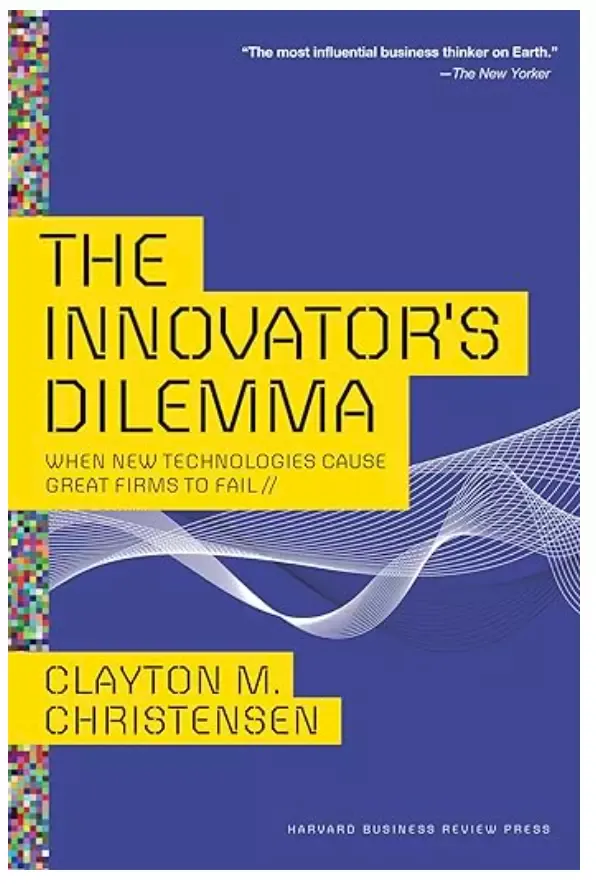
In the fields of innovation and business strategy, this work is considered seminal. The difficulties experienced by established businesses when dealing with disruptive technologies and innovation are discussed in the 1997 book.
Numerous businessmen and leaders have been motivated by the book, which emphasises the need for adaptation and creative destruction in a constantly changing environment.
The Innovator's Dilemma, which highlights the conundrum faced by successful companies, is the book's central premise. They have to decide between concentrating on the present markets and products that have been successful for them and pursuing new disruptive ventures that can put their current business at risk.
The book stresses the value of flexibility, the necessity of embracing disruptive technology, and the significance of consumer input in enhancing the prospects of many businesses. This book offers the innovation and disruption insights that are crucial for success in today's cutthroat environment.
Important lessons from this book
- Keeping innovation alive
- Innovative disruption
- The issue of overshooting
- Taking note of non-consumers
- Seasoned players versus newcomers
- Combining the two approaches
Michael E. Gerber's "The E-Myth Revisited"
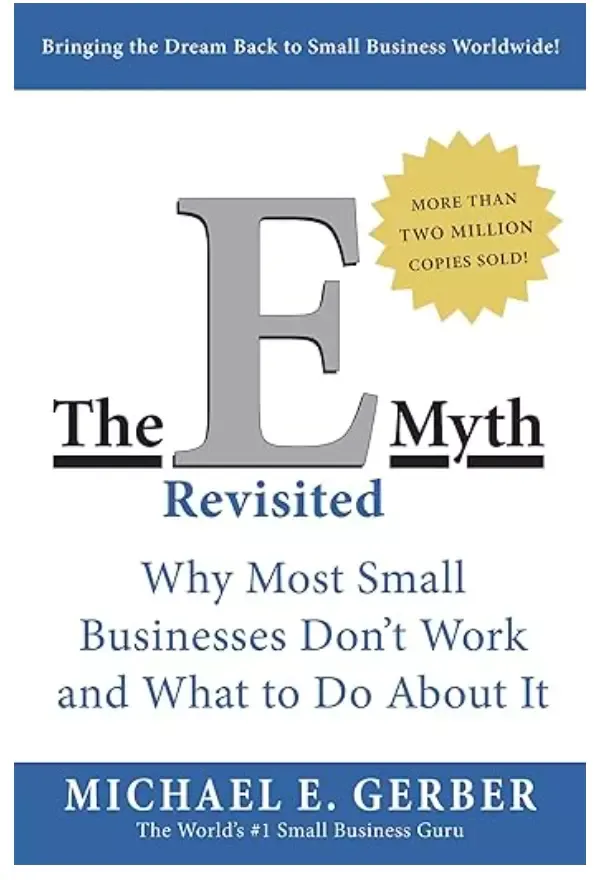
This time-tested classic has altered the lens through which business owners and executives perceive their endeavours. Although the book was amended in 1995 after its initial 1986 publication, those wishing to create a profitable and scalable business should still study it.
The significance of systems, procedures, and a clear understanding of roles within an organisation are emphasised by Geber's thoughts and principles. In this book, he makes the case that the majority of enterprises are established by individuals who have strong technical talents but lack business management experience.
Entrepreneurs can realise the full potential of their businesses by embracing the philosophy of working on the business rather than in it and by setting up turkey operations. This book will provide you with tips on how to turn your company into a well-oiled machine that can continue to grow in this cutthroat market, whether you are a novice or an expert in this sector.
Important lessons from the book
- An e-myth.
- Three crucial roles.
- The model franchise.
- Work on standardising your company's.
- Operation handbook.
- Standardization.
- Establishing a business rather than a job.
- Turkey operation.
- Adding value.
- How important is the documentation?
- Recessive and revisiting.
Built to Last by Jerry I. Porras and Jim Collins
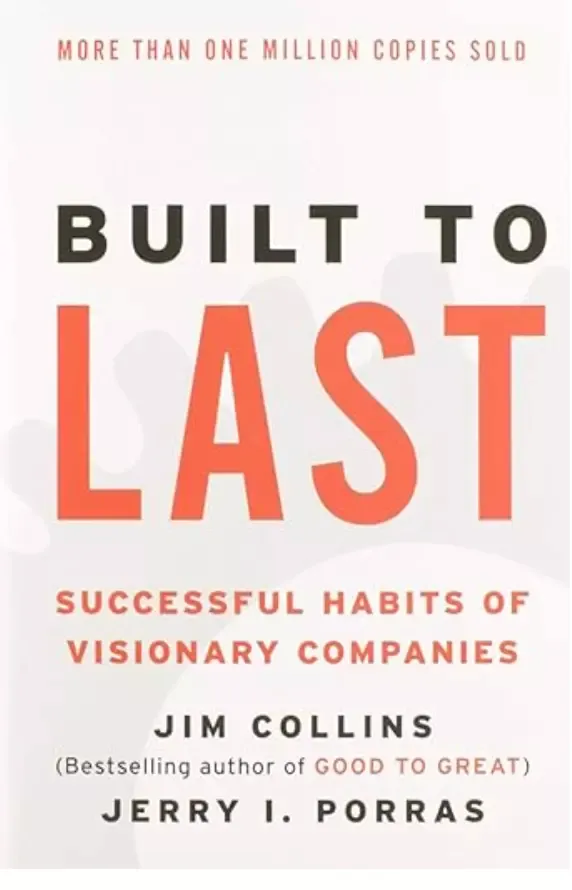
This business book examines the common practices and traits of enduring and forward-thinking businesses. The 1994 publication of the book has had a significant influence on how organisations think about sustainability and long-term performance.
Collins and Porras examined 18 extraordinary businesses to identify the guiding principles that have sustained them over long periods of time. The book keeps motivating businessmen and leaders to rise above average performance and leave enduring legacies.
The book emphasises the value of maintaining the foundation while fostering innovation and advancement, establishing a balance that enables the business to succeed in this competitive market. It sheds light on the tactics and traits that set apart a visionary organisation from the competition.
Important lessons from this book
- The value of core ideologies
- Building a clock, not telling time
- Maintain the essence
- Encourage the process
- Cut culturally
- The Big Hairy Audacious Goal (BHAG)
- Change a lot, but maintain what works.
- Extending the flywheel effect
- Comparison to competitors who tell the time
Malcolm Gladwell's book "Outliers."
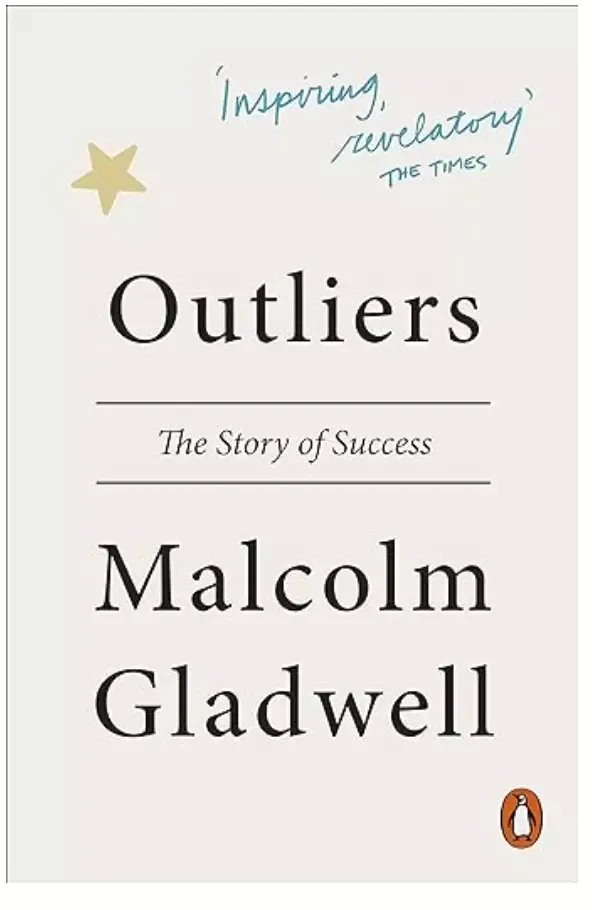
The fascinating book Outliers explores the elements that lead to extraordinary success. This book, which was published in 2008, explores the underlying factors that motivate exceptional achievements and questions the received wisdom about what it takes to succeed.
Gladwell sheds light in this book on the significance of opportunity, hard work, culture, and hard effort in determining the fates of both individuals and groups.
Gadweell questions preconceived ideas about what constitutes success for an individual by analysing the tales of the outliers and the unseen factors that determine their travels. You ought to choose this book if you're curious about the dynamics of success.
Important lessons from this book
- The rule of 10,000 hours
- Timing and opportunity are crucial.
- Mathew's influence
- Cultural heritage
- Intentional practise
- Meaningful assistance
- Support from family and communication
- Application of one's talent is not sufficient on its own.
Sun Tzu's "The Art of War"

The book is a classic treatment of military strategy and tactics, and it has many applications in business, leadership, and daily life. The famous work was written in prehistoric China, yet it still serves as an example for people and organisations that wish to succeed through careful planning, strategic thinking, and proactive implementation.
The principles stated in this article have their roots in ancient Chinese warfare, but they are adaptable and timeless, making them useful in a variety of modern contexts. The book provides you with a wealth of knowledge to assist you in navigating the complexity of contemporary difficulties and achieving your goals with strategic finesse.
Important lessons from this book
- Understand yourself to understand your foe.
- Adaptability
- Plan and strategy
- Taking on a leadership role
- The significance of lying
- Warfare economics
- Victory without conflict
- Momentum and chance
- Intelligence and information
Seth Godin's "Purple Cow"

This fantastic book provokes thought and upends preconceived notions about how businesses might stand out in a crowded market. The metaphorical "Purple Cow'' alludes to anything exceptional, distinctive, and captivating.
In this book, Seth Godin makes the case that businesses should dare to be distinctive and take steps to stand out in today's competitive marketplace if they want to succeed.
Companies can attract clients who become devoted advocates by using the ideas in this book and developing products that stand out in the marketplace. Purple Cow provides insightful advice on how to differentiate yourself from the competition and win over your audience's hearts and minds.
Important lessons from this book
- Be outstanding.
- Promote innovation and seek out early adopters.
- Request marketing
- Word-of-mouth promotion
- Recognise failure
- Issues with the status quo
- Seth's rule
- Think about the user experience.
- Consistency
- The secret is to differentiate.
Last words
Entrepreneurship is undoubtedly an exciting and rewarding adventure, but it also has its share of difficulties. The 12 books listed below provide expertise, advice, and inspiration to assist you in effectively navigating the entrepreneurial landscape.
Along with reading the books indicated above, you should keep in mind that learning and continual development are two crucial tools you may use to help you on your way to success.
Also read the following:
Best psychology books you can read in 2023.
9 Books That Can Assist You in Finding Inner Peace.
Top 10 Books That Every College Student Should Read.
Share and subscribe to the blog by email.




Comments ()